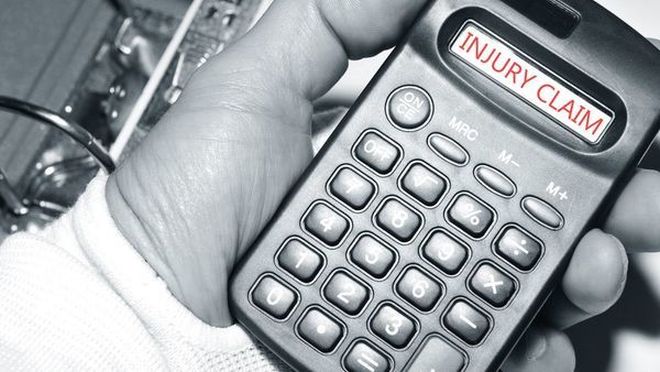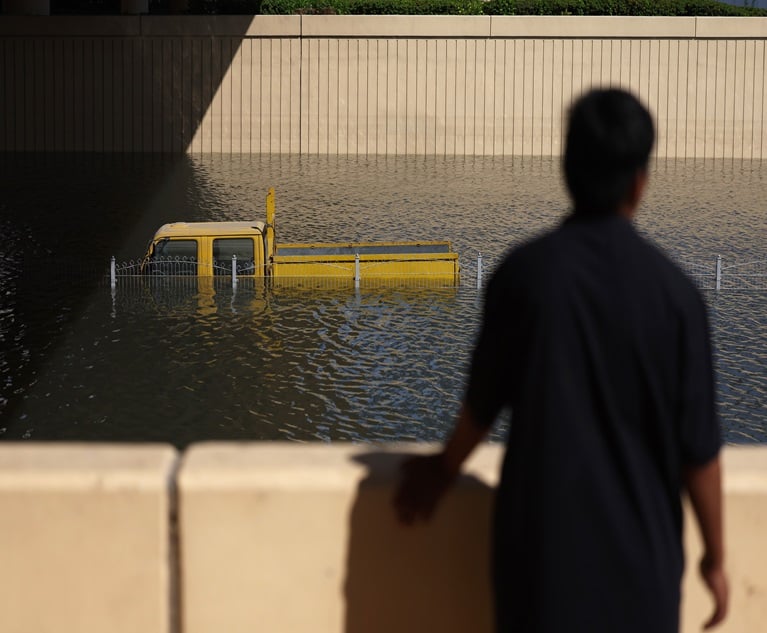
Once an insurance carrier is notified of a work injury, it is required by law to promptlyinvestigate the injury and determine whether the claim iscompensable within 21 days under Section 406.1 of thePennsylvania Workers' Compensation Act.
|Before any decision is made on each claim, one can only assumethat at the very least these investigations involve:
- Speaking with the injured worker.
- Obtaining witness statements and incident reports from theemployer.
- Reviewing medical records.
Reasonable investigation?
However, there is a growing concern that claims adjusters toocommonly deny claims without performing a reasonable investigationof the injury and ignore pertinent information they do have intheir possession at the time a denial is issued.
|Imagine being transported by ambulance to the emergency roomfollowing a witnessed work accident. The injury was timely reportedto the employer on the date it occurred and medical recordsdocumenting the work injury were turned over once they becameavailable.
|Due to the severity of the injury, it is undetermined when areturn to work is possible, if at all, and theonly available form of income while being out and recovering isweekly workers' compensation benefits. Then, out of nowhere, anotice of workers' compensation denial is received in the mailindicating that no work injury was sustained on the date inquestion.
|Scrutiny & penalties
Unfortunately, this scenario has become a reality for manyindividuals who sustain work-related injuries in Pennsylvania andare denied the benefits they are owed without any explanation fromthe insurance carriers. In this situation, the investigationperformed by the claims adjusters must be scrutinized and penaltiesshould be imposed on insurance carriers when it is clear that noreasonable investigation was performed required by the act.
|Under Section 435, workers' compensation judges have theauthority to award penalties against insurance carriers when aviolation of the law is committed. Therefore, when an obvious workinjury is denied by a claims adjuster, a penalty petition should befiled based on the adjuster's failure to properly investigate theclaim and the adjuster's file and log notes should be subpoenaedimmediately.
|Deter bad faith behavior
The sole purpose of imposing penalties in these situations is todeter bad and illegal behavior and failing to sanction insurancecarriers when claims are wrongfully denied will not stop thesepractices from being performed again in the future. In fact, in1996, the penalty provision of the act was amended by Act 57 andthe penalty limit of 20% was increased to 50% in an effort to deterbad faith behavior.
|While defense attorneys typically object to a request to deposeclaims adjusters in an effort to shield them from being questionedabout their investigation (or lack thereof), injured workers andtheir attorneys are entitled to cross-examine adjusters when apenalty petition is pending in this context.
|Under Pennsylvania Rule of Evidence 611(b), “A party witness ina civil case may be cross-examined by an adverse party on anymatter relevant to any issue in the case, including credibility,unless the court, in the interests of justice, limits thecross-examination with respect to matters not testified to ondirect examination.”
|Burden of proof
When a penalty petition is filed, the burden of proving that aviolation of the act occurred obviously lies with the injuredworker. Therefore, when the defense fails to make the claimsadjuster available to be questioned regarding their investigation,the Rules of Evidence are not being followed and it prejudicesclaimants' attorneys from fully establishing their case.
|In this instance where the defense refuses to produce the claimsadjuster, who is a witness in the litigation and in its reach andcontrol, the injured worker is entitled to seek an adverseinference from the court, as in Wood v. Workers'Compensation Appeal Board (County Care Private Nursing), 915A.2d 181, 187 (Pa. Cmwlth 2007).
|Illegal & unethical behavior
In some instances, the adjuster's file and log notes clearlyreveal that an investigation was performed and compensability wasestablished, but then a denial was issued regardless. Other times,the documents received in discovery show that the claims adjustersimply failed to perform any investigation at all before denyingthe claim outright.
|This type of illegal and unethical behavior was recently exposedwhen California's insurance commissioner launched an investigationinto Aetna after one of its former medical directors conceded underoath that he never reviewed patients' records in determiningwhether to approve medical care. Drash, Wayne. CNN. “California launches investigation followingstunning admission by Aetna medical director.”
|Moreover, only in instances where there is uncertaintysurrounding the compensability of a particular claim, the actallows insurance carriers to issue a “temporary” acceptance of aninjury, which is called a notice of temporary compensation payable(NTCP), in order to further investigate the claim for an additional90 days without truly accepting liability of the claim at thattime. However, if the NTCP is not properly stopped during the 90day period, this temporary acceptance automatically converts as amatter of law into a full acceptance of the claim.
|Violation of law
It's important to note that the NTCP was not created to giveinsurance carriers additional time in order to create a strategy asto how to handle a claim. In fact, the duty to investigate underthe act “naturally includes the duty to perform a reasonableinvestigation in good faith,” and therefore, it is also a violationof the law where the claims adjuster issues an NTCP when there isno doubt an injury occurred at work and is fully compensable, asin Gumm v. Workers' Compensation Appeal Board (J.Allan Steel), 942 A.2d 222 (Pa. Cmwlth. 2008).
|It's imperative for insurance carriers to perform thoroughinvestigations before making determinations regarding thecompensability of each and every claim. If the claims adjusterfails to do so, injured workers' and their families could be leftwith no income or medical coverage for an entire year throughoutthe litigation process.
|The time is now to stop this common trend and begininvestigating the adjusters' investigation of workers' compensationclaims.
|Related: Lives reclaimed: Understanding the hurdles faced byinjured workers
|Andrew F. Ruder ([email protected]) isan associate with Pond Lehocky Stern Giordano and concentrates hispractice in the area of workers' compensation litigation.
Want to continue reading?
Become a Free PropertyCasualty360 Digital Reader
Your access to unlimited PropertyCasualty360 content isn’t changing.
Once you are an ALM digital member, you’ll receive:
- All PropertyCasualty360.com news coverage, best practices, and in-depth analysis.
- Educational webcasts, resources from industry leaders, and informative newsletters.
- Other award-winning websites including BenefitsPRO.com and ThinkAdvisor.com.
Already have an account? Sign In
© 2024 ALM Global, LLC, All Rights Reserved. Request academic re-use from www.copyright.com. All other uses, submit a request to [email protected]. For more information visit Asset & Logo Licensing.








